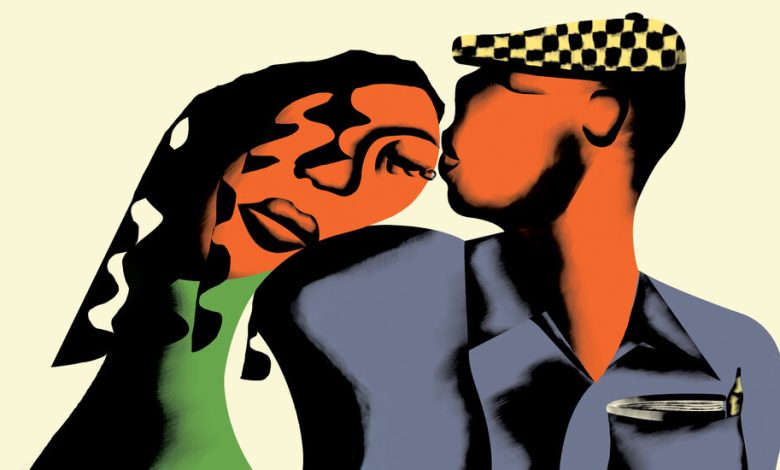The Poems That Taught Me How to Love

My friend Ravi introduced me to the love poems of Pablo Neruda when we were teenagers. On the cover of the writer’s “Selected Poems,” Neruda stands wearing a checkered beret, his hands clasped, with the painted statue of a woman looming in the background. His eyes have the look of a man whose heart has been broken many times. “Tonight I can write the saddest lines,” begins one of the first poems in the collection. “I loved her, and sometimes she loved me too.”
Listen to this article with reporter commentary
Not all of his poetry is so somber. I’m thinking now of the line “I want to do with you what spring does with the cherry trees.” On the page, Neruda is always mixing intense landscape imagery and the emotions they evoke in him, using nature as a transcendent metaphor for the erotic. But I wanted to read these lines out loud — and did so, ill-advisedly, to a girl I liked in Spanish class. Maybe I was drawn to Neruda because then his simple, straightforward verses were the only poetry I could understand in Spanish. With “Selected Poems,” I was learning the language, but I was hoping Neruda could teach me to talk to women, too.
When I turned 19, I was finally Neruda’s age when he published his first book of love poems. I was a college junior and longing to see Chile after years of Spanish classes. I came to Santiago as a study-abroad student in the summer of 2004. I knew South America was my place when I found an older woman collecting change on the metro while reciting Neruda’s 20th love poem. The other passengers mouthed the verses with her.
Finally, at the end of the term, I got a ticket to Patagonia, to see the southern landscapes that I had imagined while reading Neruda. “Ah vastness of pines, murmur of waves breaking,” read one, “Twilight falling in your eyes.” And yet, unlike in the poems, I had no muse, a fact cruelly highlighted by the waiter in Punta Arenas who told me I could not order the crab stew because it was only for two.
It was my last day in Ushuaia, and I was in the attic of the hostel where I was staying with the Neruda book in my bag when I met someone. She told me she was German and studied Latin American literature at the Free University of Berlin. That seemed to be enough to have signaled destiny to me. There were also the little coincidences that had poetry of their own. When we left town the next day, we were assigned seats together on the bus, as if by fate. It was an 11-hour ride, which included a short ferry over the Strait of Magellan, and we poured our hearts out to each other. When we got to Punta Arenas, we ran into the same waiter I saw when I was alone days before. He looked at her, then at me, and reached out to shake my hand, smiling.



